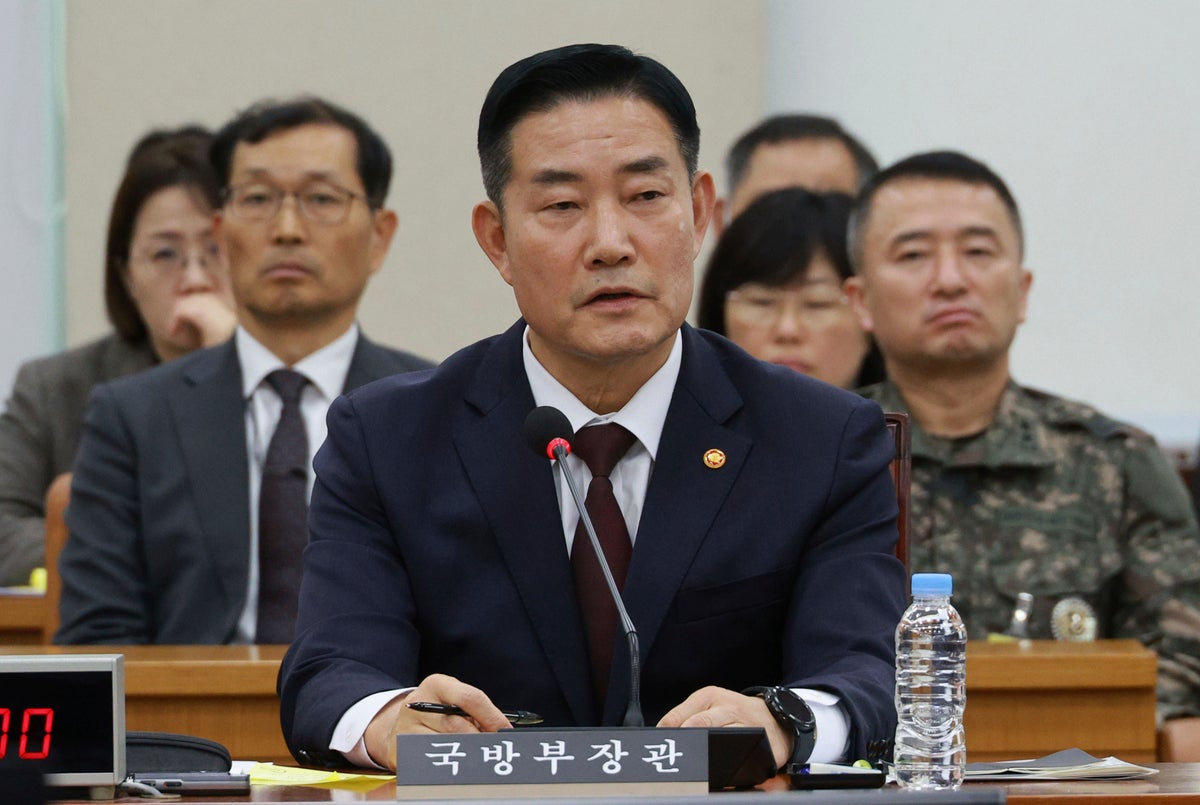
A light-water reactor at North Korea’s main nuclear complex will likely be formally operational by next summer, South Korea’s defense minister said, amid suspicions that the North may use it as a new source of fissile materials for nuclear weapons.
Concerns about North Korea’s nuclear program deepened recently as the U.N. atomic agency and foreign experts said they’ve detected signs indicating that North Korea had begun operating its light-water reactor at the Yongbyon nuclear complex.
IAEA Director General Rafael Grossi said last week that his agency had observed increased levels of activity at and near the reactor and since mid-October, a strong water outflow from its cooling system. He said the reactor is “a cause for concern” because it can produce plutonium — one of the two key ingredients used to manufacture nuclear weapons, along with highly enriched uranium.
The South Korean Defense Ministry said Friday that Defense Minister Shin Wonsik told local reporters a day before that his country had also spotted similar cooling system-related activities associated with the reactor last summer.
Shin said the reactor appears to be in the stage of a trial operation and that it's expected to be officially operational around next summer.
North Korea has long produced weapons-grade plutonium from its widely known 5-megawatt reactor at Yongbyon. The light-water reactor would be an additional source of bomb fuels, and observers say its bigger capacity could allow it to produce more plutonium. Yongbyon has a uranium enrichment facility as well.
There are questions about the reactor's reported operation, as light-water reactors are best-suited for electricity generation. Shin noted there has been no country that has used light-water reactors to produce weapons-grade plutonium. However, many observers say North Korea could adapt one at Yongbyon to produce weapons-grade plutonium.
“(North Korea)'s commissioning of a new light water nuclear power plant raises serious concerns, including safety,” the U.S. Mission to the U.N. in Vienna said Saturday in a message posted on X, formerly known as Twitter. “(North Korea's) unlawful nuclear & ballistic missile programs continue to pose a grave threat to international peace & security.”
Grossi also noted the North's operation of the light-water reactor violates U.N. Security Council resolutions.
The IAEA and foreign governments rely on satellite imagery and other methods to monitor activities at Yongyon and other suspected nuclear facilities in North Korea. The North kicked out IAEA inspectors from the country in 2009.
Outside estimates on the size of North Korea's nuclear arsenal vary, ranging from 20-60 to more than 100. Experts say North Korea can add six to 18 bombs each year. Since his diplomacy with the U.S. collapsed in 2019, North Korean leader Kim Jong Un has repeatedly vowed to build more nuclear weapons and introduce high-tech weapons to cope with what he calls intensifying U.S. hostility.
Foreign experts say Kim would ultimately hope to use his expanded nuclear arsenal to win sanctions relief from the U.S. when diplomacy resumes. In response to the North's latest intercontinental ballistic missile test last week, the U.S., South Korea and Japan urged other countries to fully implement U.N. Security Council resolutions that have imposed punishing sanctions on the North for its past banned weapons tests.







